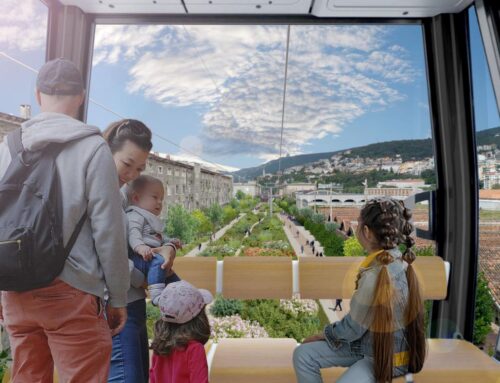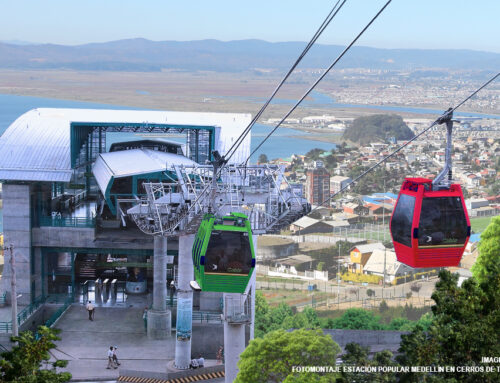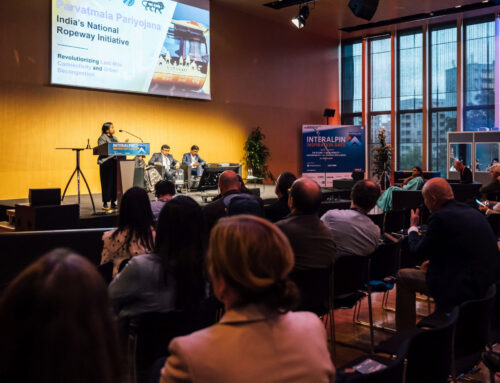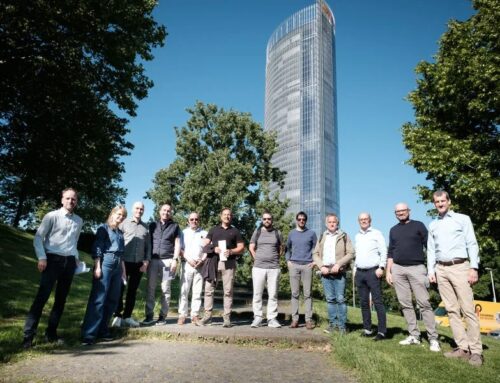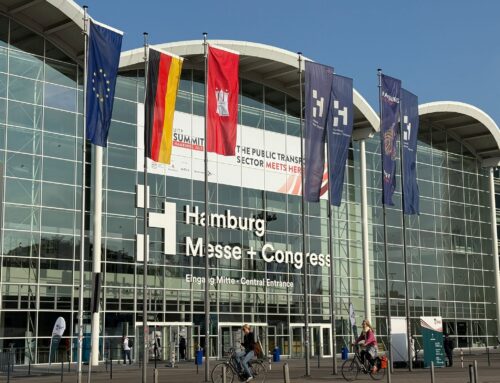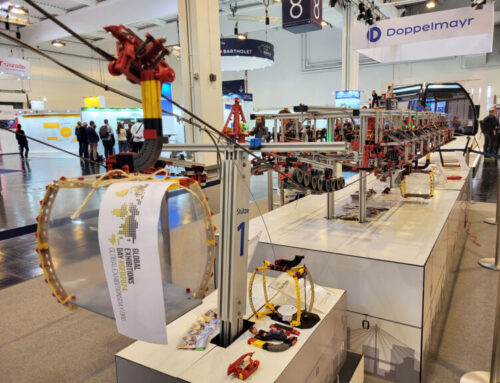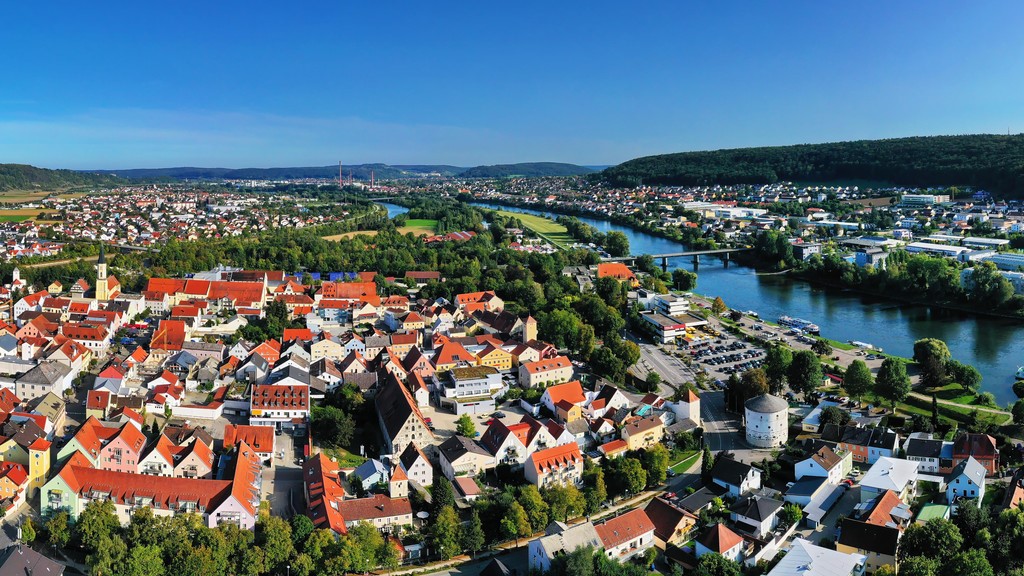
Cities, SI-Urban
Feasibility study for cable car in Kelheim put out to tender
The city of Kelheim does not have its own railway connection. The nearest train station is over seven kilometers away in Saal an der Donau. A direct, safe, and comfortable connection to the station in Saal is intended to facilitate people’s transition to rail transport.
With a cable car across the Danube, long detours could be avoided. The solution to the connectivity problem will be outlined in a feasibility study.
The total cost of the study amounts to around 165,000 euros. The state of Bavaria, represented by Minister of Transport Christian Bernreiter (CSU), has provided a grant of 107,250 euros to support the project.
Minister Bernreiter emphasizes: “The study should examine whether an urban cable car can be a technically, economically, and environmentally viable addition to public transportation. We are happy to support the development and expansion of attractive mobility options, even if the idea may seem unusual at first glance.”
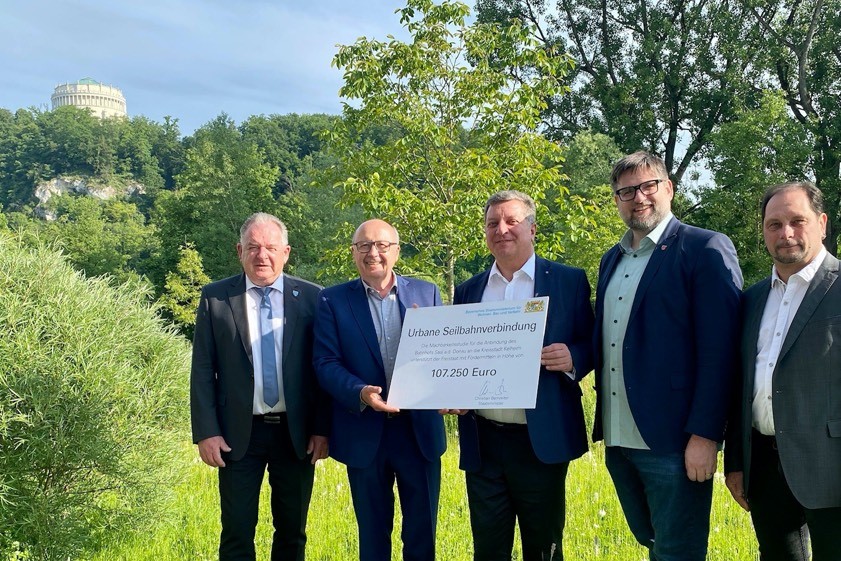
From left to right: Saal town hall chief Christian Nerb, Kelheim District Administrator Martin Neumeyer, Bavarian Transport Minister Christian Bernreiter, Kelheim Mayor Christian Schweiger, Deputy Mayor of Saal an der Donau Matthias Rieger.
Photo: StMB
As is usual with infrastructure projects, resistance is already forming among the population at this early stage. Criticism has been directed at published figures from an initial estimate during the initial phase, which suggested costs of around 30 million euros for a cable car.
In addition, for a single-cable circulating ropeway with a length of approximately five kilometers, about 20 support towers would need to be installed. Opponents are already collecting signatures and planning to launch two citizens’ initiatives against the project, which they consider too expensive and damaging to the landscape.
On the other hand, the mayor of Saal, Christian Nerb, criticizes the initiators of the two citizens’ initiatives: “They are collecting signatures against a project that has not yet been approved. That doesn’t make sense to me.”
Instead, he suggests waiting for the results of the feasibility study and the corresponding decisions of the municipal parliaments in Kelheim and Saal.
The feasibility study is now expected to deliver a clear result on whether an urban cable car could be viable in the specific context. Until then, there will undoubtedly be further exchanges of arguments between supporters and opponents.
Martin Neumeyer
District Administrator Kelheim
“In a constantly evolving world, mobility concepts and our way of using mobility also change. A cable car between Kelheim and Saal an der Donau will bring both places closer together as a new form of mobility and significantly contribute to better connecting Kelheim to the public transport network.”
